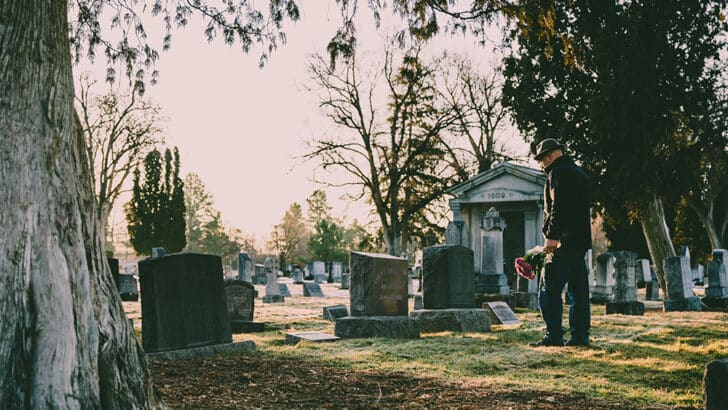Jen Hogan writes a regular feature for The Irish Times, in which people in the public eye are asked the same series of questions. They range from “How agreeable are you?” to the much more serious “What do you expect to happen when you die?”
I have been trying to figure out why the majority of the participants either avoid the question, are unsure, or have beliefs that do not align at all with traditional Christian beliefs about the afterlife.
Is being less likely to believe in an afterlife correlated with being the kind of person who becomes well-known enough to be asked to answer these questions?
Or is it just that belief in the afterlife is declining rapidly? It is hard to get data on this. An ‘Amarach’ survey from 2023 asked whether the respondents believed in life after death. 41% did, compared to 56% in 2003 and 76% in 1981.
Figures
The figures for belief in God were 55% in 2023, 87% in 2003, and 95% in 1981. However, according to this poll, belief in God cannot be directly correlated with belief in the afterlife or even with the existence of the soul. While 44% believed in the soul, only 41% believed in an afterlife.
In The Irish Times articles, some were like veteran journalist, Vincent Browne, who when asked what he thought would happen when he died, responded bluntly, “Nothing. I’ll be dead.”
Apparently, at a time when 95% of people believed in God, fully a quarter of the population believed in reincarnation”
Many responded with a variant on being remembered in by people who love them.
The most original answer came from Kathryn Thomas, the television presenter. “I’m going to turn into a dolphin and swim around the Caribbean.”
Does that qualify as a belief in reincarnation, which, according to ‘Amarach’ research, 17% of people believe in, a drop from 22% in 2003 and 26% in 1981? Apparently, at a time when 95% of people believed in God, fully a quarter of the population believed in reincarnation.
Existence
Heart-warmingly, one of the most positive affirmations of the afterlife came from hotelier, Noel Cunningham. As a gay man, he stated: “I have absolutely no doubt, having lived, at times, tormented by the perceived notion that being gay is both sinful and evil, that my God is a forgiving, loving God. And when I arrive at those gates, I will be embraced warmly and taken through, and I will meet my beloved family and friends again. And it will be a place of immense peace and contentment. I will walk in a beautiful garden.”
Interestingly, he is also in recovery after a protracted battle with alcoholism. He does not say whether he is in recovery due to a 12-step programme, but for those who are, the emphasis on a higher power leads many to rely on a loving and forgiving God. Either way, Noel Cunningham even uses some of the traditional iconography of the afterlife – the gates of Heaven and a garden.
It would be unwise to read too much into an entertaining series of articles in The Irish Times but belief in an afterlife does have ramifications beyond the personal.
Kathryn Thomas touches on this when she says that her six-year-old daughter is obsessed with death.
In my experience, it is a normal developmental stage for children to be deeply curious about death, just as they are curious about the time before they are born. This can be triggered by an experience of death, including the death of a pet, but does not have to be.
Fame delays the moment when our names are no longer mentioned but makes no personal difference to a dead person”
Ceasing to be is a big idea and children grapple with it. If only two-fifths of the Irish population believe in an afterlife, the explanations that we give our children will change greatly. At times in the past, we tended to be too glib about death as if all loss was somehow compensated for by eternal life. We are going in the opposite direction now.
The horizons of our lives have shrunk to the here and now if we will only be remembered as long as the last person has memories of us. Perhaps it accounts for the obsession with fame that so many young people feel? Obviously, fame delays the moment when our names are no longer mentioned but makes no personal difference to a dead person.
It certainly adds to the burden of life if this short span is all we have and we have no prospect of meeting our loved ones again.
When people have an eternal horizon, they can be less frantic about their everyday lives, more open to the long view, and less the centre of their own personal universe and strivings. A culture without this perspective may explain at least some of the rise in anxiety so often noted today.


 Breda O'Brien
Breda O'Brien
